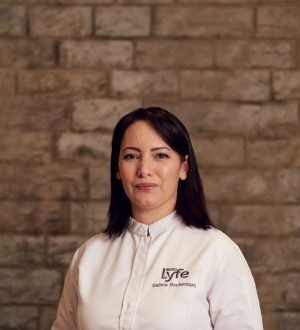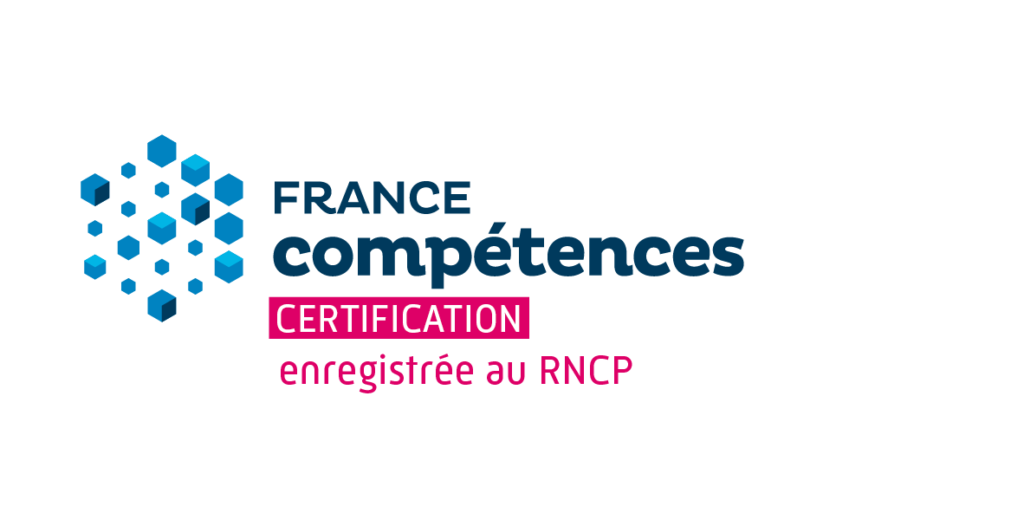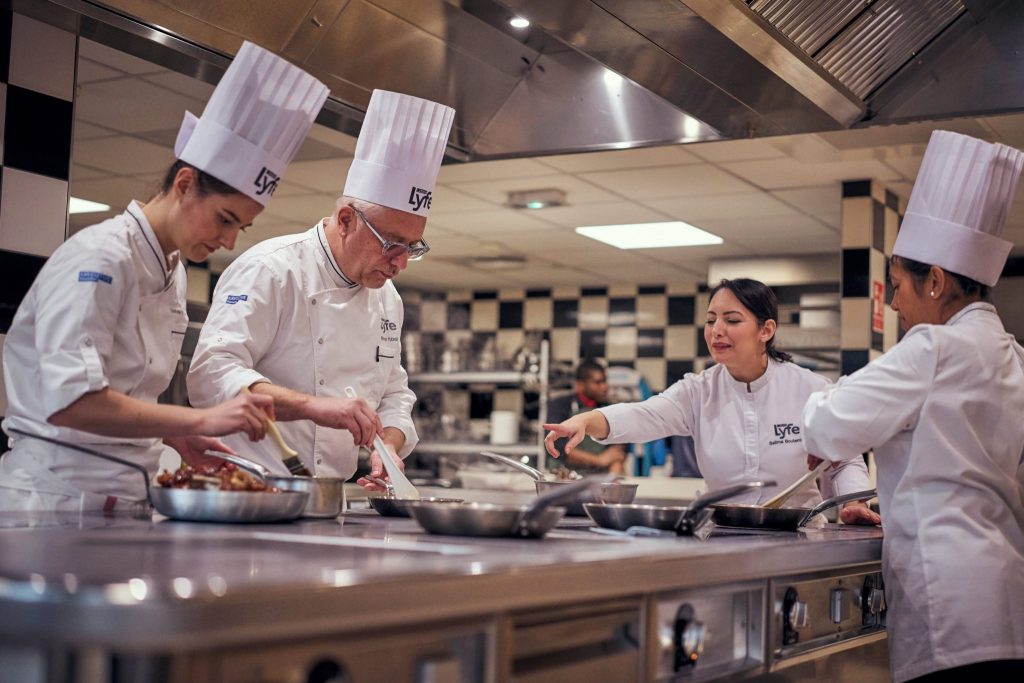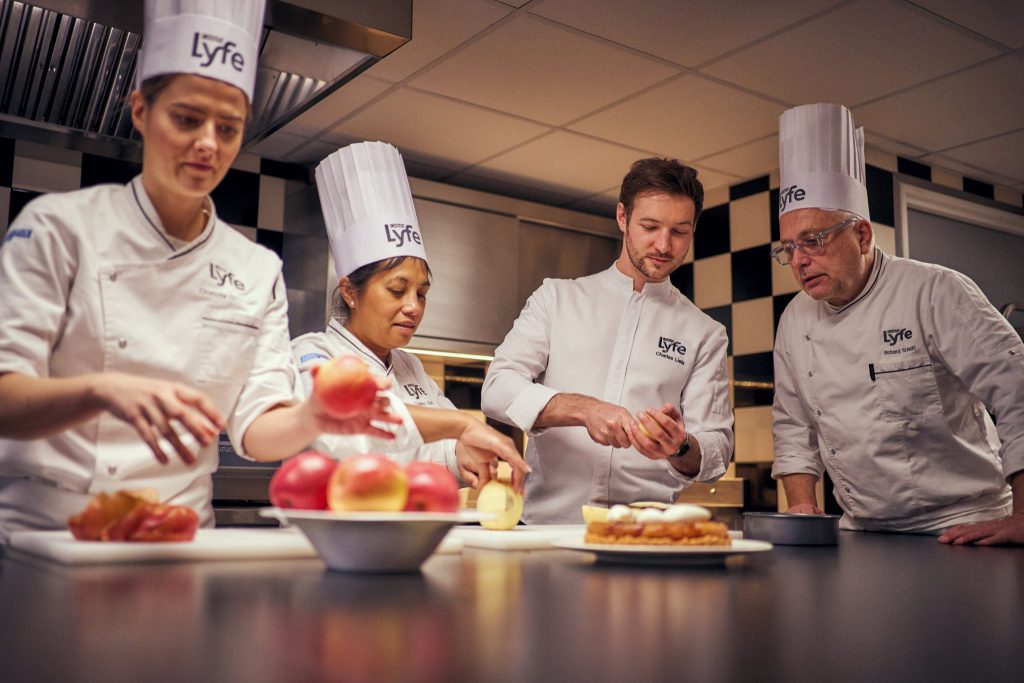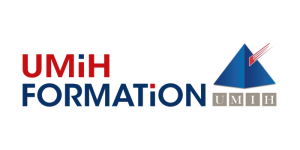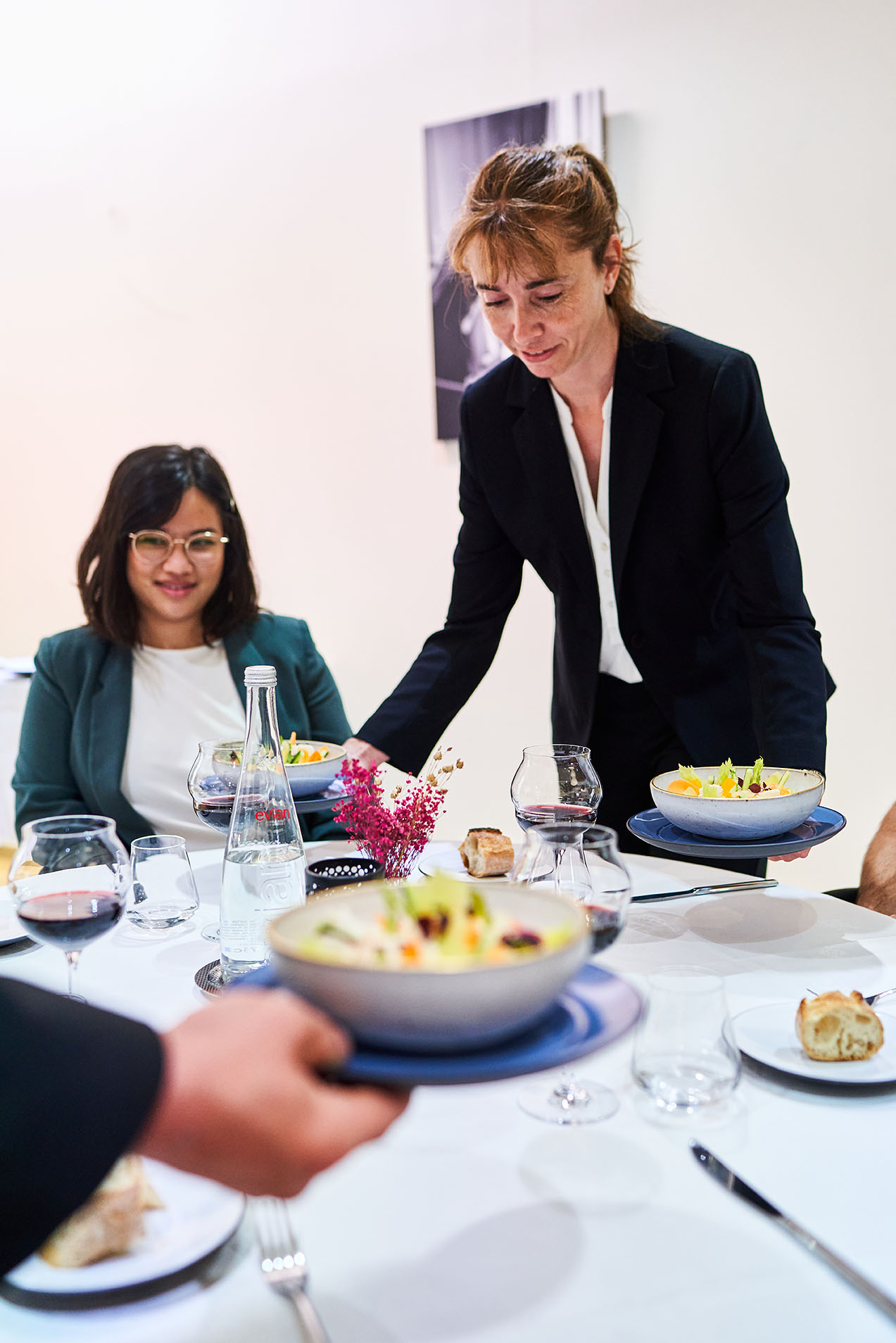Are you considering a career change into the culinary industry? The “Cuisine & Horizon” programme at Institut Lyfe Executive Education offers a comprehensive pathway to acquire all the professional skills necessary to thrive in this exciting field.
Through a complete curriculum and tailored pedagogy, this programme provides the opportunity to obtain a recognized professional diploma or prepare for the CAP Cuisine certification.
Salima Boutemtam
Chef Instructor at Institut Lyfe Executive Education “Cuisine & Horizon is a program dedicated to the culinary arts, offering the opportunity to master the codes of our profession while developing culinary sensitivity. It allows one to learn and perfect essential rules, combining passion and expertise.”
Duration: 8 weeks - 283 hours
Dates: From March 9th to May 13th 2026
From May 26th to July 30th 2026
Number of participants: 8 to 10
Tuition Fee: €10950 including VAT-€9125 excluding VAT*
Expected outcomes
-
Mastery of fundamental culinary and pastry techniques
-
Understanding of food hygiene and safety regulations
-
Knowledge of basic restaurant management principles
*price details: €9,560 including tax for training fees (€7,966.67 excluding tax) + €1,390 including tax (€1,158.33 excluding tax) for mandatory additional fees
A structured programme to become a professional chef
This programme aims to equip you with all the necessary skills to become a professional chef. You will learn the fundamentals of cooking and pastry, restaurant management basics, and become familiar with sanitary requirements and professional practices. Upon completion, you will be prepared to join kitchen teams in various culinary environments, such as restaurants, guesthouses, or as a private chef.
Programme provided in French only.
Who is the Cuisine & Horizon programme for?
This program is designed for individuals seeking a career change into the culinary and restaurant industry. Whether you are employed, unemployed, or undergoing professional retraining, this program is open to all who have the desire to learn a new profession and specialize in the culinary arts.
Obtain a recognized diploma
This program leads to the “CUISINIER” title, Level 4, NSF code 221, registered with the National Directory of Professional Certifications (RNCP) as per the decision dated November 27, 2025 (RNCP sheet No. 41647), subject to validation of each competency block. You also have the option to prepare for the CAP Cuisine certification.
Learn more about our diploma here.
Programme
The programme comprises several modules covering different aspects of the culinary profession. Each module is designed to provide a balanced approach between theory and practice.
Culinary Training- 167 hours (including 14 hours of e-learning)
Theoretical Approach to the Culinary World
You will begin by exploring the origins of cuisine with an introduction to the history of gastronomy, various types of cuisines, current trends, and essential professional vocabulary. You will also cover the indispensable principles of nutrition and dietary balance.
Acquiring Culinary Technical Skills – Culinary Fundamentals
By the end of your training, you will have mastered basic techniques in professional cooking, organized according to major product categories and preparation techniques:
-
Culinary fundamentals within responsible dining: cutting, cooking, flavor pairing, plating, and color harmony
-
Basic culinary techniques and practices: vegetable cutting, stocks, sauces, egg preparations, soups, and broths
-
Meats and poultry: classification, cutting, cooking, and presentation
-
Fish and shellfish: classification, cutting, cooking, and presentation
Working in a responsible and sustainable manner in both cooking and pastry is now an essential and crucial aspect of the future of the restaurant industry. These aspects will be addressed throughout your training journey.
Pastry Training – 35 hours (including 2 hours of e-learning)
Develop specific skills – Pastry techniques
French pastry recipes, fundamental techniques, and pastry technology will no longer hold secrets for you by the end of this module. You will acquire the techniques specific to pastry to practice this profession as a chef.
-
Pastry techniques through the great classics
-
Execution of essential recipes: choux pastry, creams, ganaches, and tarts
-
Variations of these recipes according to your own sensitivity and creativity
-
Gourmet plated desserts and petits fours: fondants, millefeuilles, rum babas, coconut macaroons, croquembouches
Food Hygiene and Safety Regulations – 14 hours
Food safety and hygiene in the kitchen are essential for working in an establishment. You will learn the strict hygiene and safety rules necessary to ensure the quality of dishes and guarantee consumer safety.
-
Key principles of regulations and risk analysis
-
Best hygiene practices in commercial catering
Restaurant Management – 43 hours (including 2 hours of e-learning)
Operational Management
-
Defining your target audience and building your offering: positioning, developing the food offering, menus
-
Establishing a forecast budget and monitoring your activity: dashboards, revenue, expense control, sales optimization, and upselling
Restaurant Operating License
In collaboration with the Union des Métiers et des Industries de l’Hôtellerie – UMIH FORMATION.
Practical Scenarios – 21 hours
The training program focuses on practical experience to help you develop skills that can be put to immediate use.
Through practical workshops focusing on key restaurant products and skills, particularly in wine service and serving techniques, you will learn how to structure your professional approach, refine your posture in the dining room, and personalize the customer experience.
At the end of the course, a full day of professional role-playing is organized to assess your skills and prepare you for the final evaluation.
Assessment methods
Preparing for and Achieving the “Cuisinier” Certification
Throughout the culinary retraining program, various assessments are conducted to validate the acquisition of the knowledge, interpersonal skills, and technical skills necessary to perform the job.
Types of assessments used:
- Case studies and professional questionnaires.
- Practical assessments: Role-playing exercises to assess the candidate’s technical skills.
Certification requirements:
- To pass a module, candidates must obtain a minimum score of 60% across all associated assessments.
- Certification requires validation of all three skill blocks.*
- Certification is awarded following a certification panel review.
- Each skill block is valid for life.
It is essential to work consistently throughout the program to prepare effectively and succeed in your certification.
Each training module includes a satisfaction questionnaire to be completed by the trainee.
Information sessions
To learn more about the Cuisine & Horizon programme, information sessions are organized at our premises in Écully, attended by Dominique Brunet, Director of Institut Lyfe Executive Education, and Fabienne Novelli, our Client Relations Manager, who will answer all your questions to guide you through your training journey.
Date: January 17, 2026
Time: 10 AM to 12 AM
Location: Institut Lyfe Executive Education – 25 Chem. du Trouillat, 69130 Écully – Rose Garden
Register for the information session here.
Embarking on a new professional life through career transition
Professional retraining through our chef training program is a solid and effective springboard to access a new and exciting profession.
The training course in figures*
**Based on 100% of candidates who sat the exam
***Percentage of participants who worked in the industry within 6 months after completing the programme
